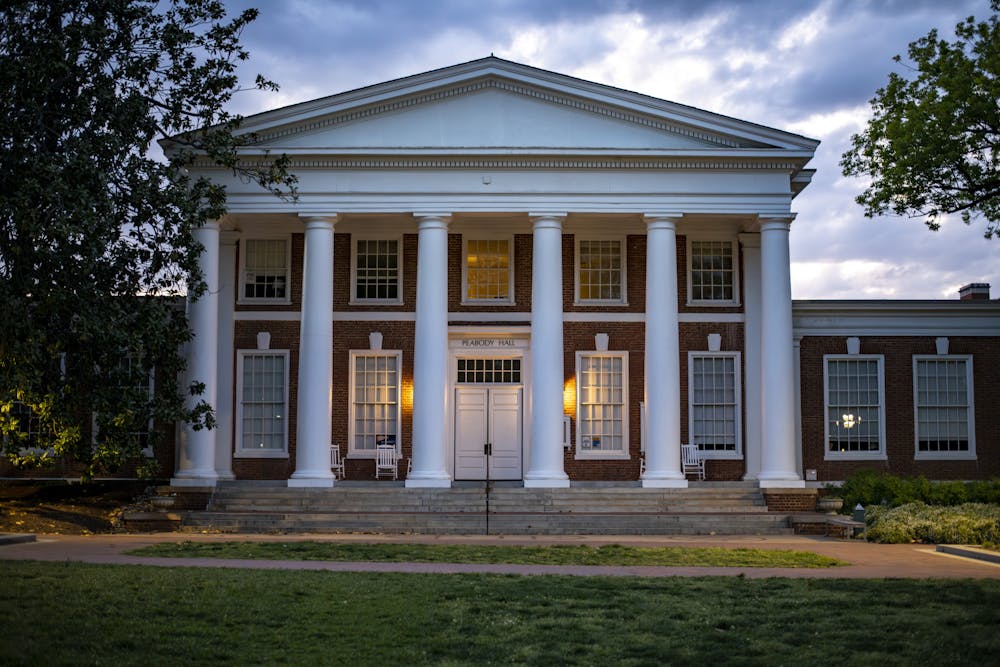As students return to the University for another year, many are grappling with the recent Supreme Court ruling which has changed the landscape of college admissions for the foreseeable future. In light of the decision, students hope the University will continue to actively reaffirm their dedication to building a supportive and inclusive community on Grounds for individuals of all identities.
Over the past 20 years, race-based admissions have been upheld by the Supreme Court, most notably in a 2016 case, Fisher v. University of Texas. Now, the Supreme Court's landmark ruling on affirmative action June 29 outlaws using race as a factor in college admissions and sent ripples of debate across the nation. Setting precedents stretching far beyond the legal realm, this ruling has reignited discussions about equal opportunity, fairness and the ongoing struggle on how to address historic injustices in higher education.
For many students, such as second-year Engineering student Crystal Sanchez, college is a time to meet people from different backgrounds and with different identities and experiences from themselves.
“I grew up in a small town in Texas [where] I went to a predominantly white high school,” Sanchez said. “After finishing my first year, it definitely was a change of environment and perspective. I have been around so many different cultures, religions [and] backgrounds that I have never experienced before and I think that's helped me grow as a person.”
Some students agree that affirmative action has historically helped to create this space for students to engage with and learn from a diverse student body on Grounds, dismantling the myth of Thomas Jefferson’s “Gentleman’s University”. Second-year College student Tarini Pankanti said she believes that affirmative action is an imperfect yet essential system for ensuring educational equity at the University — and an imperative effort on the University’s part to facilitate that diverse community, especially when considering its enrollment was not fully desegregated until the 1960s and women weren’t officially admitted in the College until 1970.
“Affirmative action has been incredibly important in promoting diversity at colleges, especially at U.Va.,” Pankanti said. “Given our horrific history of utilizing slave labor for the construction of our University, it is crucial that we do everything possible now to foster a student body that not only includes marginalized individuals but amplifies their voices.”
The consideration of race is a positive and needed piece of information to consider during the college application process, according to Pankanti, who debunks a common but untrue myth that affirmative action allows students admission solely on the basis that they are minorities.
“What [race-based affirmative action] has truly done is encourage college admissions to consider students holistically, rather than attempt to isolate a student’s racial identification from their sense of self,” Pankanti said.
The University announced Aug. 1 that it will follow the law set by the Supreme Court while ensuring students are given the space to discuss the impact their race and background has had on their experiences in a prompt on the University’s Common Application.
Many universities across the nation were quick to respond to the ruling, including University President Jim Ryan. In a statement issued June 29, Ryan wrote that the University continues to remain committed in determining ways to incorporate diversity in the student body.
“Our goal is to prepare students to lead in a complex and dynamic world, and one of the ways we achieve that goal is to offer them as many opportunities as possible to exchange ideas and perspectives with people with different backgrounds, experiences, and perspectives,” Ryan said.
Prior to the Supreme Court ruling, some states had already abolished the practice of affirmative action. In California, where affirmative action was outlawed by voters in 1998, the University of California, Berkeley and the University of California, Los Angeles saw a 40 percent decrease in Black and Hispanic enrollment. These cases have suggested that a ban of affirmative action in the United States could lead to similar results across other higher education institutions.
Fourth-year College student Cheyenne Butler said that she is curious about how the response from other universities in light of the decision will affect the levels of diversity on college campuses. She also noted that other universities could help historically marginalized applicants gain admission if they follow the University’s example of placing a question about race in the application.
“I think depending on how institutions respond, it will determine if it's a step back or step forwards, because if you do something like U.Va, [who said] we have a question where we're able to talk about race so [they’re] taking it to an account to some extent,” Butler said.
Some students are still confident that the University will continue to uphold its commitment to cultivating a diverse, engaging and inclusive academic community. For example, Sanchez said that the University strives to support a diverse community on Grounds through various organizations and programs that offer support for minority students, such as the Office of African American Affairs, the Multicultural Student Center and Hoos First.
“Maybe the University could promote them more,” Sanchez said. “It is also important to educate the people who don’t identify as that group or subsection to educate them on why we have these places.”
While the affirmative action ruling stopped the consideration of race during the college application cycle, recognizing the impact of diverse communities remains important, according to Butler, who says diversity forsters valuable communication among students, and should be advocated for in higher education settings.
“I do think [diversity] definitely improves University life for all people who are involved within the University, especially the students,” Butler said. “It enriches the campus space, and there is a value in diversity.”







